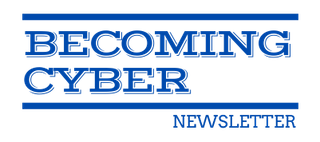Five Tips to Prepare for Your Cybersecurity Interview
On your path to a cybersecurity career, the interview is near the last step. The idea of pitching yourself for a new career field can be a bit daunting. Preparation will help ease the stress of interviewing and set you up for success.
Research the Interviewer
The recruiter will generally tell you the interviewer’s name. That’s your starting point to do your research. LinkedIn is an excellent starting point to learn relevant details about the interviewer’s professional and educational background. This information can provide you insight into the types of questions the interviewer may ask. You may find commonalities between you and the interviewer. These can be worth mentioning to create a sense of connection (and display that you’ve done your home).
It’s always worth knowing whether the interviewer is the hiring manager, a potential teammate, or someone from another related team. If that’s not obvious, it’s fair game to simply ask the recruiter.
Brush Up on the Basics
Review your training or certification learning material, so you have it front of mind. Just how technical the interview questions will be depends on the role and the interviewer. Having one or two cybersecurity certifications on your resume can potentially preempt basic technical questions. A quick review will help alleviate any concerns of getting stumped on the basics.
Current Events
It can be difficult to get a clear picture of companies’ cybersecurity challenges and concerns from the outside. Listen to the most recent episodes of the Cyberwire Daily podcast. You’ll walk away with a good overview of major events in cybersecurity right now. While you may not be asked directly about current events, take the opportunity to demonstrate that you’re tracking them. This would be impressive for candidates applying for their first cybersecurity job.
Advanced Topics
While an understanding of advanced cybersecurity topics is not necessary for an entry-level role, demonstrating awareness of them will help you stand out from the pack. One example is the Cyber Kill Chain, which is frequently discussed and used for planning in cybersecurity. Of course, every time you mention an advanced topic, you open yourself to questions. You can temper expectations by stating, “I’m learning about x.” Be prepared to explain what you’ve learned and your plan to learn more. These conversations can be more interesting for the interviewer and highlight your enthusiasm and determination.
Prepare Your Questions
Towards the end of interviews candidates are usually asked, if they have any questions. As a rule, you should always have questions. Sure, this is a time to address any administrative or logistical concerns. However, questions are also a means for you to demonstrate your curiosity and cleverness. Prepare one or two questions beforehand based on your research and make note of questions that come to mind during the interview. Ideally, you make the interviewer think to herself, “That’s a good question.”
You’ll get a cumulative benefit from cybersecurity interviews. The more you do, the better you’ll get at them. Remember that it’s a two-way conversation. As much as you really want to land a cybersecurity job, they also really want to hire someone who can start learning and contributing. After all, there is a shortage of cybersecurity professionals. Adequately prepare for your interview and you can demonstrate your ability to help alleviate their cybersecurity personnel shortage… and thus land your first cybersecurity job.

